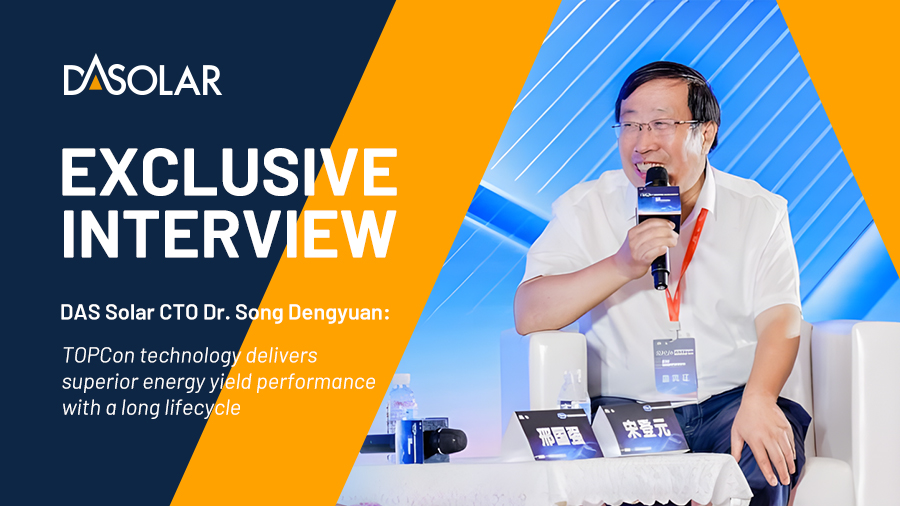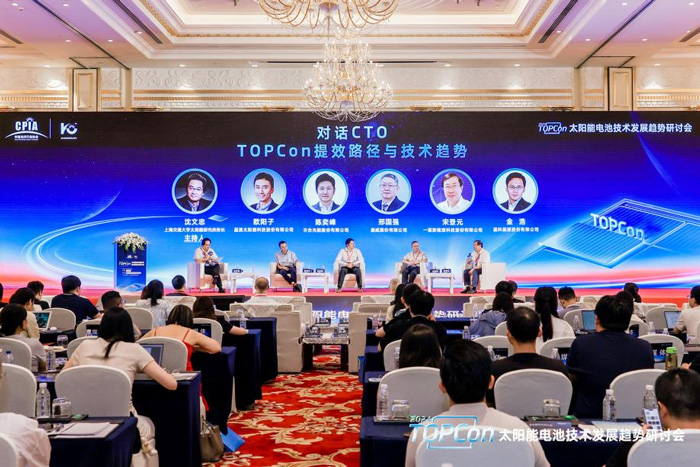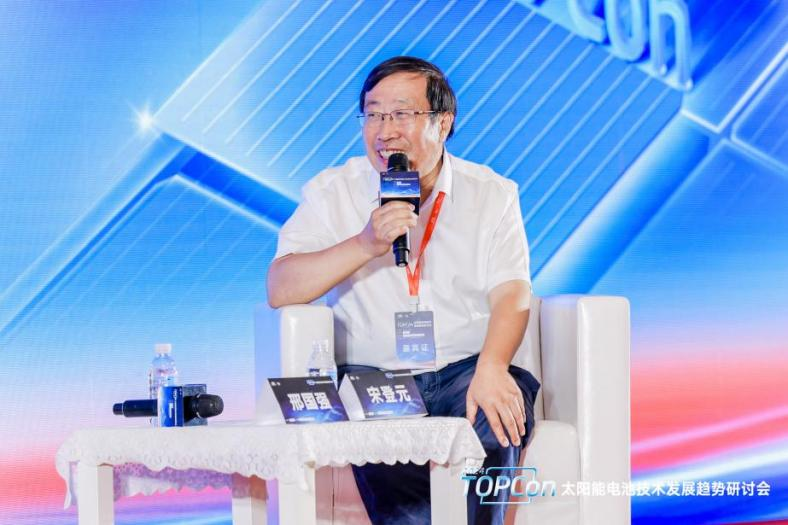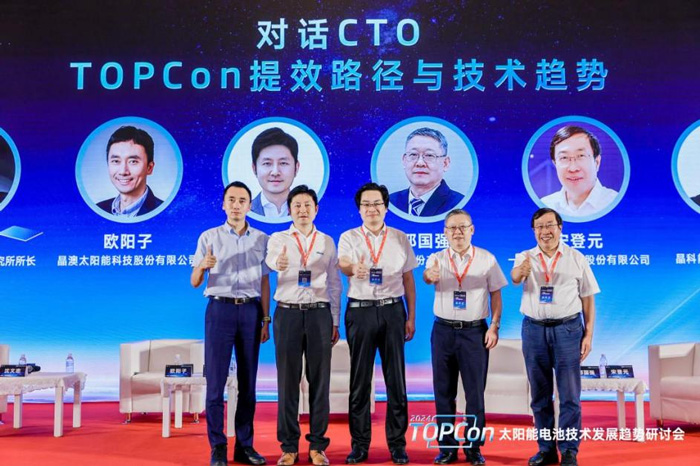DAS Solar CTO Dr. Song Dengyuan: TOPCon technology delivers superior energy yield performance with a long lifecycle
2024-08-20

Shanghai - The "2024 TOPCon Solar Cell Technology Development Trend Seminar," hosted by the China Photovoltaic Industry Association, was held in Shanghai recently. Seminar topics covered TOPCon cell technology developments, pathways and also examined technological innovation and applications, empirical power generation data, and the future state of the industry. Leaders of the China Photovoltaic Industry Association, Top 10 PV companies CTOs, industry technical experts, third-party testing agencies, design institutes, and media organizations participated in the seminar. Dr Song Dengyuan, CTO of DAS Solar, was invited to join the seminar as a panelist for the panel discussion. The following is a summary of Dr. Song’s key dialogues.
 \
\
Q: N-type has outpaced P-type products in these years, with TOPCon leading the way. What are TOPCon's key factors that have driven its rapid market capture? What does this mean for the industry's development?
Dr Song Dengyuan: "As a top-tier PV company, DAS Solar chose TOPCon technology from its inception, firmly believing TOPCon would become the next-generation mainstream technology to replace PERC. I believe three factors define the long lifecycle characteristics of TOPCon technology: LCOE, a healthy industrial ecosystem, and high cell efficiency.
TOPCon is compatible with key equipment and processes from the previous PERC technology. In China, the entire suite of core equipment for TOPCon production is self-supported and controlled. This results in substantial cost advantages for production line investment and auxiliary materials compared to other N-type technologies, creating a strong industrial ecosystem. With such an ecosystem in place, technology costs decrease rapidly, which is why TOPCon is projected to capture over 70% of the market by 2024. TOPCon also holds significant efficiency potential. With a theoretical efficiency of up to 28.7%, approaching the theoretical efficiency limit of 29.4% for crystalline silicon, demonstrating substantial potential for improvement."

Q: How long is TOPCon expected to maintain its leading position in the industry? What additional technological advancements and innovations are needed to maximize its value?
Dr Song Dengyuan: "Considering its advanced passivation principles and high theoretical efficiency, TOPCon is likely to maintain its dominant market position for at least five years. Its technological advantages are substantial from a photovoltaic theory perspective, with a robust industry ecosystem featuring a comprehensive innovation chain and well-established infrastructure. Additionally, TOPCon’s superior energy yield compared to other N-type technologies supports ongoing cost reductions and efficiency improvements, contributing to an extended lifespan.
For future advancements in TOPCon technology, we have conducted extensive research and simulations. To elevate efficiency from 25.5% to over 28%, modifications to the cell structure are required. DAS Solar is focusing on two main directions: optimizing existing materials & structures, and developing new material systems. Our goal is to improve hole selectivity on the front surface by exploring a variety of selective contact passivation materials with varying work functions. We call this structure TOPCon/CSPC. A TOPCon/CSPC structure is expected to produce efficiency levels exceeding 28%, potentially approaching the theoretical limit of crystalline silicon cells."

Q: There is ongoing debate about advanced technologies, with data inconsistencies and conflicting test results in different environments. How do you view this issue? In practical use, which technology performs better, especially in low-irradiance scenarios?
Dr Song Dengyuan: "Building a qualified PV verification base requires extremely strict and professional standards. Establishing and operating such a base, and obtaining accurate power generation data with minimal margin of error, necessitates the support of a highly skilled professional team and robust infrastructure. Without these prerequisites, the data obtained lacks credibility and authority.
To obtain accurate energy yield data, China has invested heavily in establishing numerous national-level and third-party photovoltaic experimental platforms. The National Experimental Platform for Photovoltaic and Energy Storage (Daqing Base) is one of the largest, with its phase I project featuring 161 experimental schemes and 69 PV and energy storage products. The platform covers a wide range of PV modules, including TOPCon, HJT, IBC, and PERC technologies. The 2022 report showed that empirical data from the Daqing Base indicated N-TOPCon modules achieved the highest energy yeild among different types of modules, surpassing IBC and PERC by 0.5% and 2.24%, respectively. In 2023, the report further confirmed that N-TOPCon modules continued to lead in energy yeild, outperforming IBC and PERC by 1.16% and 2.87%, respectively. This consistent performance over two consecutive years underscores TOPCon as the top performer."







 浙公网安备33080302000236
浙公网安备33080302000236